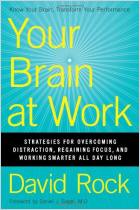
Reclaim Your Brain
How to Calm Your Thoughts, Heal Your Mind, and Bring Your Life Back Under Control
Recommendation
Psychiatrist Joseph A. Annibali draws on his experience helping thousands of troubled people. He suggests methods, applications and treatments for people with overloaded or “too-busy brains.” And, he tells you how to alter your brain’s circuits by changing the stories you tell yourself. Annibali packs a lot of information and analysis into his report. While never giving medical advice, getAbstract recommends this fascinating read to anyone who’d like to know about and use these insights into the brain and human psychology.
Summary
About the Author
Joseph A. Annibali, MD, is chief psychiatrist at the Amen Clinics in Reston, Virginia. He is a leading expert on using brain SPECT imaging with Lyme disease. He supervised the doctoral-level psychology program at George Washington University. At George Mason University he was a member of the faculty of the Department of Molecular Neuroscience and the School of Systems Biology.

















Comment on this summary or 开始讨论